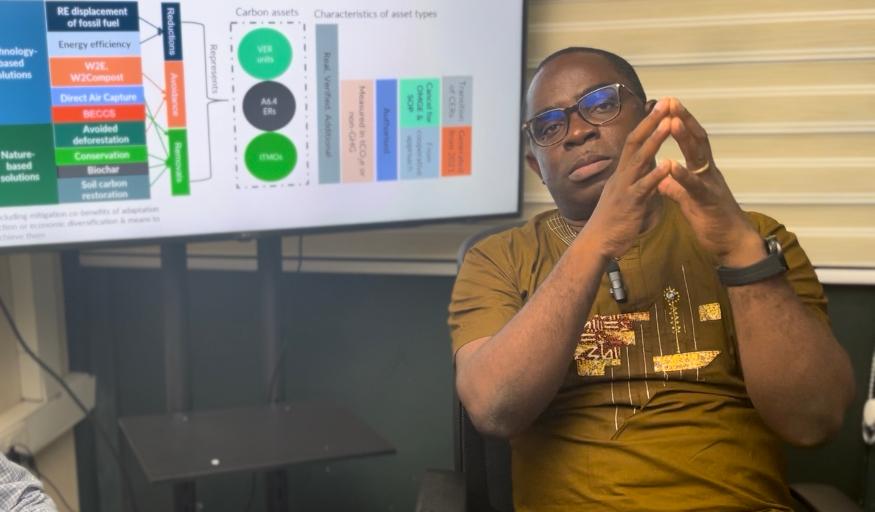By Albert Oppong-Ansah
Accra, Feb. 16, GNA – The Environmental Protection Agency (EPA) is providing support services and building the capacity of public and private organisations to enhance the collection of data on climate change.
The organisations have received support, including the identification of gaps in their information gathering systems and recommendations to bridge them.
Dr Daniel Tutu Benefor, Ghana’s Focal Person to the United Nations Framework Convention on Climate Change, (UNFCC) told the Ghana News Agency that the support was part of the Capacity Building Initiative for Transparency (CBIT) Project.

He said the Ghana CBIT Project, funded by the Global Environmental Facility and United Nations Environmental Programme, aimed at strengthening the effectiveness of the Ghana Climate Ambitious Reporting Programme (GCARP) for climate action and support.
Ghana had, over the years, made the effort to establish a national system for climate reporting, Dr Benefor said.
Prior to the contribution of CBIT, data collection approach was done in an ad-hoc manner, where a working team was assembled to put together data and subsequently use for reporting to the UNFCC.
The approach, he said, had been reoriented through decentralisation and mainstreaming of the task of reporting, thus the institutions taking up the climate reporting task.
“We are at the phase where we are moving it further in harmonising the national system for effective reporting. The CBIT project is strengthening efforts to establish a sustainable reporting system by looking at institutions and their roles, data system, capacity development, regulatory, governance, data collection methods and tools for data collection,” Dr Benefor said.
Some of the beneficiaries are the ministries of Transport, Food and Agriculture, Energy, Sanitation and Water Resources, Forestry Commission, Ghana Statistical Service, and National Development Planning Commission (NDPC),
Meanwhile, Mr Kingsley Kwako Amoako, the Head of Environment and Climate Change Unit, Ministry of Food and Agriculture, which benefitted from the project, told the GNA that CBIT engaged the services of a consultant to work with the Ministry to review the methodology of agriculture statistics for climate reporting.

The review identified gaps in relation to climate data collection, after which all the relevant directorates met, discussed the gaps identified and the recommendations made were mainstreamed.
He said the Ministry had updated its data collection system by including relevant climate change data to its monitoring and reporting activities nationwide.
That would feed into the country’s climate change central data collection system, being hosted by the EPA, Mr Amoako said.
He noted that the data collection system did not initially capture data on climate change from the sub-national to the national level, explaining that the situation had changed.
“The Policy, Planning, Monitoring and Evaluation and the Statistics Research and Information Directorates worked together to look at the data collection instruments and updated it accordingly,” he said.
He said there were other data collection gaps identified in the methods used by Statistics Research and Information Directorate, which would require some capital investment to be resolved.
Other shortfalls included lack of data repository, and data on disaggregated livestock and fertilizer usage.
GNA